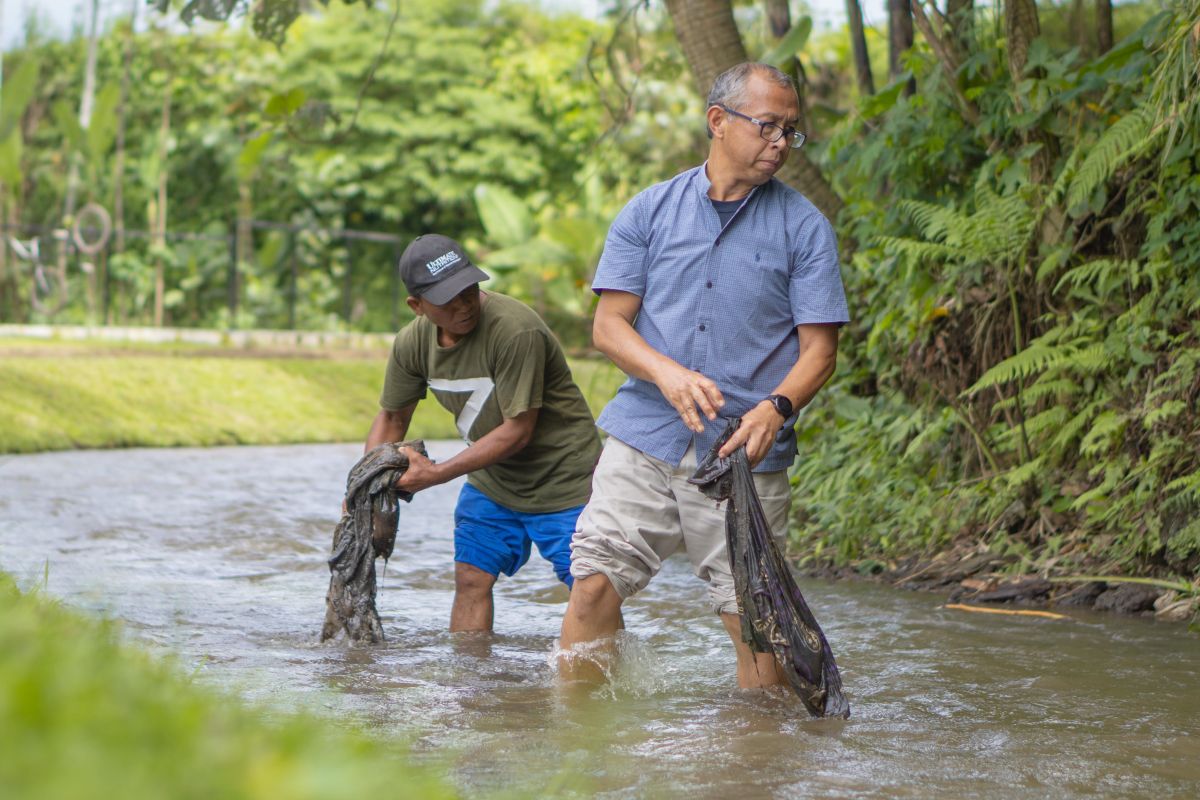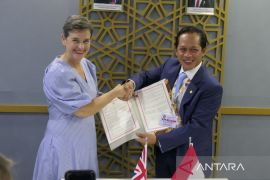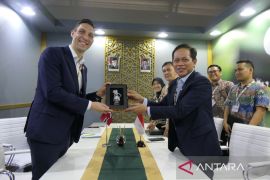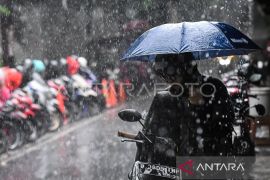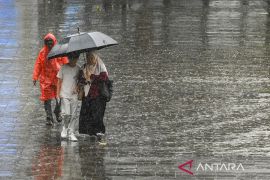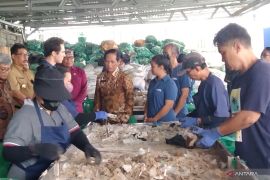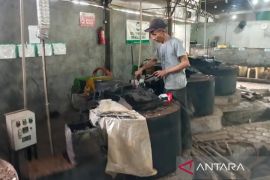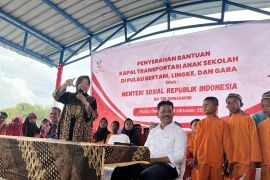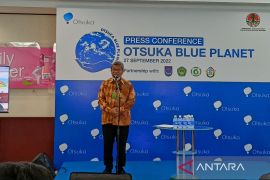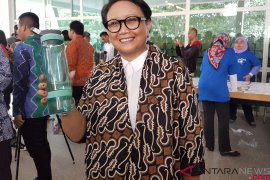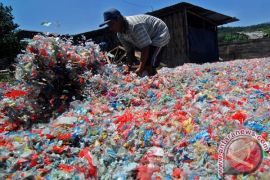Leaders have to show they really believe the message they’re preaching by getting their hands dirtyJakarta (ANTARA) - Yong Ardinal does not have to roll up his trousers and wade into the brown stream. He’s an entrepreneur employing many locals to do the messy jobs around his family’s home and business. He can just tell the workers what to do and then head back to the office.
There’d be some results: Plastic bags, soiled nappies, and household rubbish would be collected from riverbanks where they got tangled in tree roots and moved and buried in a landfill.
But, in a few weeks, the job would have to be repeated due to villagers upstream continuing to throw their trash into the rushing waters. This is despite signs forbidding the practice and the threat of fines.
"Even though the notices have been erected by local leaders, supposedly with the backing of their communities, there’s still no understanding of the reasons to protect the environment," Yong said. "It’s not enough to put up warnings, you have to show by example."
Or, as Indian nationalist Mahatma Gandhi said: “If you want to change the world, change yourself.”
In the Australian state of Victoria, individuals can get fined US$370 (Rp4 million) just for tossing a smoke stub in public or using a plastic bag. It’s double if the cigarette is still alight and the bag large—though that’s less likely as plastic bags are no longer used by supermarkets.
Buyers have to bring their own cloth bags or cardboard boxes if they want to take their shopping home.
"That system seems to work in the West because it’s been accompanied by an intensive education campaign backed by the public who report offenders," said the widely traveled Yong.
Slogans like “Too lovely to litter” have been taught at schools and have carried through to adults.
The community organization “Keep Australia Beautiful” started in 1968. Its anti-pollution and sustainable lifestyle campaigns, led by charismatic personalities and supported by sports stars and famous entertainers, helped spread the message. Such work has to be continuous — not stop-and-start — to be effective.
It also needs widespread support from the government, businesses (big and small), industry, and educators. All must believe that what they are doing is right and that they’re not involved in a contentious and divisive issue.
Regulations prescribing container deposits of 5 cents (Rp500) on drink cans encouraged kids to collect them and earn pocket money. Last century, drivers and passengers tossed empties into roadside ditches — a behavior that’s now rare with other motorists taking photos and reporting to the authorities.
"Some of these initiative are worth trying in Indonesia, but they are not the only answer, and many ideas — like fining offenders — won’t work for practical and cultural reasons," Yong said. "Leaders have to show they really believe the message they’re preaching by getting their hands dirty."
And the job he does is foul as scores of families just a few hundred meters upstream use the river as a toilet and laundry. Much of the mess flows for a while and then settles on the creek floor, lifting the water level.
In turn, this erodes the banks with the soil adding to the mud, so everything has to be dredged to restore the environment.
Before plastic became widely used, most waste was organic. Containers were made of woven bamboo, which eventually rotted; so, apart from the visual pollution, it mattered little if they were just tossed aside.
Now, the waste problem is threatening farmers as the narrow channels that carry water to the rice paddies get clogged and overflow with waste.
The other danger is disease as people working in irrigated fields handle wet plants destined for the market, but already contaminated by human waste.
Yong is a chemical engineer, and his wife, Anita Januaris, is a chemist. Both are graduates of the prestigious Bandung Institute of Technology (ITB), as is their son, Aditya Pratama Ardinal.
While working for major foreign oil and gas companies, Yong saw many innovations that he wanted to apply on a smaller scale. In 2004, the family started their own environment and management consulting business.
They called it Rhuekamp after an area in Sumatra, bought land in the village of Pucangsono about 15 kilometers east of Malang, and set about putting their dreams into practice.
Solar power was an obvious choice, so the panels went on a shed roof. Installers were hard to find so the family used their engineering skills to do the job themselves.
China leads the world by generating 40 percent of its power from the sun, followed by the US at 20 percent. Indonesia uses less than 1 percent of solar power.
Yong plans to install a water wheel to create more electricity once the river is cleaned and deepened. The family is feeding poultry and fish with household scraps to help create a sustainable economy.
Deep holes have been dug around the 0.7-hectare property as sumps to prevent flooding and reduce run-off from roofs and concrete.
The family’s ideas are spreading among the locals by their example; there has been no need to print pamphlets and get politicians to give speeches.
Aditya, a cycling enthusiast, has opened a workshop called Pinine to build hand-made bikes and set up a track and rest stop for recreational riders. This fronts the river, which the family has named Kali Resik, or clean river.
“In the past, every village home had enough yard space for a fishpond and a garden,” Yong said. “Now, modern homes are too small. We need to return to some of the old practices to preserve the environment and make kampongs and towns sustainable and liveable.”
*) The writer is an Australian journalist and author living in East Java.
*) The views and opinions expressed on this page are those of the author and do not necessarily reflect the official policy or position of the ANTARA News Agency
Related news: Gov't launches Conscious Living program in Jakarta to manage waste
Related news: Composting a new approach in handling waste: Minister
Related news: Ciliwung River conservation expected to be national standard: Minister
Copyright © ANTARA 2023
